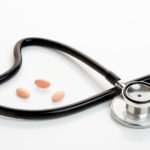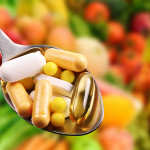By David Blyweiss, M.D., Advanced Natural Wellness
April 8, 2015
- Cholesterol isn’t the problem…
- And statins aren’t the answer
- Here’s the real solution
For years I’ve been telling you that the cholesterol scare is a hoax…that it’s okay to eat your eggs, and actually enjoy them. Now, it looks like the government may finally come around to my way of thinking.
In February, an advisory panel came up with recommendations for the new 2015 Dietary Guidelines for Americans. And guess what they had to say about cholesterol?
The panel said that “evidence shows no appreciable relationship between consumption of dietary and serum cholesterol.”
Their conclusion: cholesterol is “not a nutrient of concern.”
If you’ve been religiously avoiding foods that contain cholesterol, this may come as a surprise to you. However, it is true. Most of the cholesterol circulating through your bloodstream is manufactured by your liver. Only a small portion comes from the foods you eat.
While I expect the new guidelines will follow closely with the committee’s recommendation, we won’t see the actual changes until later this year. In the meantime, there’s still one side of the cholesterol hoax that isn’t being addressed.
Big pharmaceutical companies that produce Lipitor, Crestor and other statin drugs would have you think statins are a miracle cure for heart attacks. At the same time, they tend to downplay the side effects.
But here’s the real truth: these drugs have very little benefit, and the side effects are more common than you might imagine.
Open your arteries, improve blood flow for a new health miracle...
Did you know your circulatory system has over 60,000 miles of arteries, veins and other blood vessels, if stretched end to end?
But as you age, your blood vessels undergo changes, which may cause them to stiffen, thicken and get clogged.
GOOD NEWS! Doctors have now identified a “Miracle Molecule” inside your arteries that helps OPEN your arteries and IMPROVE blood flow.
It’s what Dr. Valentin Fuster calls it, "One of the most important discoveries in the history of cardiovascular medicine."To you, that means...
- Healthy blood pressure
- Sharper mind and memory
- Skyrocketing energy and muscular strength
- Increased pleasure and passion in the bedroom
- Improved circulation to every cell and organ in your body
Go here to discover a new natural way to significantly boost the levels of this miracle molecule in YOUR body NOW!
Sure, I know. You’ve been told statins benefit close to half of the population. That’s what big pharma wants you to believe. But that’s a faulty number. It’s a deceptive statistic called “relative risk.” It in no way, shape or form identifies the true risk – or “absolute risk” – of taking a statin.
Here’s the reality. Out of 1000 people treated with a statin, only 10 0f them will have one less heart attack.
That’s 1% of the population.
This leaves the remaining 99% of statin drug users facing life-threatening side effects for no reason at all. And they are life threatening.
Statins are associated with an increased risk of diabetes, peripheral neuropathy, memory loss, cataracts and most recently in the research…Parkinson’s Disease. They’re also bad for your heart health in more ways than one.
First, these drugs contribute to calcification – or hardening – of any plaque that has accumulated in your blood vessels. Well, guess what happens when your arteries become hardened?
You get a reduction of blood flow which can ultimately result in a heart attack. Next thing you know, it’s time for a stent, balloon or bypass. And none of these solutions actually treat your problem. They’re just patches.
Second, statins can cause a deadly form of muscle damage called rhabdomyolysis. This disease causes severe muscle pain, and can cause direct injury to the muscular tissue in your heart! This muscular disorder can also lead to liver damage, kidney failure and death.
And even if you are lucky enough to not get this, the loss of CoQ10 that statins cause can be enough to make your muscles – and you – weak.
So, if cholesterol foods are the wrong problem and statins are the wrong answer, what can you do to protect your heart?
The World's Quickest Solution for Ending Prostate and Urinary Misery
This has recently been revealed to be one of the only real breakthroughs in prostate health.
The seeds of a strange fruit (sometimes called "Chinese Apples") hold powerful phytonutrients that are a revolution in prostate health.
In fact, UCLA and Veterans Administration research have now proved this to be true.
Not only that, but it may be the worlds quickest solution for ending prostate misery.
Simply stated, these phytonutrients represent a huge step beyond beta sitosterol, saw palmetto, and other phytosterols alone.
Simply click HERE if you want to have fast prostate relief...restful, uninterrupted sleep...no more constant "urges to go"...enhanced virility...and optimal prostate support for life.
Before I go any further, I want to point out that lipoproteins (HDL and LDL) are not cholesterol. Lipoproteins are particles that carry fats, proteins and yes – even cholesterol and triglycerides – through your bloodstream.
Well, these particles come in different sizes. Some are big, fluffy and bouncy. Others are small and dense. And today we know that small, dense LDL particles are where the real cardiovascular threat lies.
These small particles tend to slip through the lining of your blood vessels where they can do the most damage. They become oxidized. Inflammation sets in. The inflammation causes plaque to start accumulating and blockages begin to develop.
Standard cholesterol screenings never look at particle size. So doctors are sending patients home with cholesterol-lowering medications that do nothing to solve this heart risk.
This is why I prefer an advanced form of lipoprotein testing, called Vertical Auto Profile (VAP). This test is a much better predictor of heart risk and and will give you a much more accurate measurement of your cholesterol profile.
If your LDL particles are small and dense, there are completely natural ways to make them bigger and bouncier. The best way? Eat a Mediterranean-style diet.
This type of eating involves getting plenty of omega-3 rich seafood, which helps increase LDL particle size.
At the same time, omega-3s decrease triglycerides, boost HDL and improve blood pressure. They’re also known for the ability to lengthen and maintain telomeres. (Shorter telomeres are associated with poor cardiovascular outcomes and advanced symptoms of aging.)
Additionally, the Mediterranean diet is full of foods high in other healthy fats, like nuts and extra virgin olive oil. These foods are shown to promote fluffy and bouncy LDL particles. This is true even in people who are genetically disposed to smaller particle size.
A real Mediterranean diet does not include trans fats or high glycemic carbohydrates.
I make this important note, because both trans fats and high glycemic carbohydrates are associated with a harmful increase in small, dense LDL particles. So watch out for margarines, vegetable oils, simple sugars and starches.
If you find it hard to get enough omega-3s from wild-caught fish, I suggest investing in a high quality fish oil supplement. And they aren’t all created equal.
Look for one that contains oil from fresh, wild-caught, deep sea fish. And make sure it’s been molecularly distilled and tested for purity (i.e., no mercury.) Take 4000 mg. daily for telomere lengthening, or 2000 mg. a day for general support.
I also recommend supplementing with up to 500 mg. of niacin, beginning at 125mg and building up weekly by 125mg until you reach 500mg.
The flush that you may get from the niacin is not dangerous. Think of it as blood flow to your skin to nourish it and keep it looking healthy. If the flush does bother you, take an 81 mg coated Bayer aspirin just before and that should help.
This B vitamin has long been known to protect your heart. And we now know that extended-release niacin has a specific effect on the smaller, more dangerous LDL particles. Plus it enhances the role of large HDL particles which also reduces cardio risk.
Sources:
Diamond DM, et al. How statistical deception created the appearance that statins are safe and effective in primary and secondary prevention of cardiovascular disease. Expert Rev Clin Pharmacol. 2015 Mar;8(2):201-10.
Frank JW, et al. Will lowering population levels of serum cholesterol affect total mortality? Expectations from the Honolulu Heart Program. J Clin Epidemiol. 1992; 45:333-346.
Mauger JF, et al. Effect of different forms of dietary hydrogenated fats on LDL particle size. Am J Clin Nutr 2003;78:370-5.
Williams P.T. et al. Low-fat diets, lipoprotein subclasses, and heart disease risk.. Am J Clin Nutr December 1999 vol. 70 no. 6 949-950
Siri PW, et al. Influence of dietary carbohydrate and fat on LDL and HDL particle distributions. Curr Atheroscler Rep. 2005 Nov;7(6):455-9.
Moreno JA, et al. The effect of dietary fat on LDL size is influenced by apolipoprotein E genotype in healthy subjects. J Nutr. 2004 Oct;134(10):2517-22.
John M. Morgan, M.D. et al. Effects of extended-release niacin on lipoprotein subclass distribution. American Journal of Cardiology. June 2003; Volume 91, Issue 12 , Pages 1432-1436, 15
Woodman RJ, et al. Docosahexaenoic acid but not eicosapentaenoic acid increases LDL particle size in treated hypertensive type 2 diabetic patients. Diabetes Care. 2003 Jan;26(1):253






